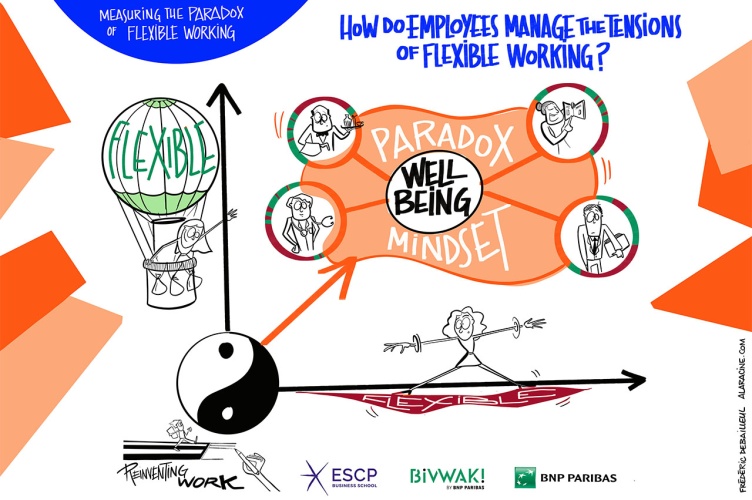Measuring the paradox of flexible workingA fascinating project launched in February 2020
Research context
Workplace flexibility has been growing steadily for the last two decades but, since COVID, it has become a must for both organizations and employees. International institutions, national governments, professional, managerial and employee organizations praise the advantages of flexible working alike. Following this trend, organizations are reinventing the way work is conducted.
However, there is still much to be learned about what flexible working means for individuals. Now more than ever, exploring workers’ experiences of flexible working has become essential to understanding how work influences people’s lives and organisational results. In particular, research results regarding the influence of flexible working on employee well-being are inconclusive.
Research question
How do employees manage the tensions of flexible working? Are experiences of flexible working connected to employee well-being? If so, how?
Methodology and milestones
Five survey studies (a business school, a consulting firm, a hotel, a hospital, and a bank).
Project in multiple areas and countries.
Research team
- Almudena Canibano (ESCP, Madrid campus)
- Argyro Avgoustaki (ESCP, London campus)
- Diana Pérez-Arechaederra (ESCP, Madrid)
Research keytake aways
Flexible working is an ambivalent experience which creates tensions and should be understood as a paradox.
Employees experience flexibility simultaneously as an inducement that is provided to them as a contribution they are expected to provide to their organisation. Employees in different sectors and occupations share this ambivalent experience.
Development of a scale to measure “flexibility as a contribution”.
Overtime (as a form of flexible working) is only negatively related with well-being when driven by extrinsic motives (e.g. praise, mimic, job demands, rewards) but not when driven by intrinsic motives (e.g. commitment, learning).
Key outcomes
External ecosystem
Shared research outputs / Awards and articles
Cañibano, A. (2021). The paradox of flexible working. LSE Business Review [link ]
Avgsoutaki, A. and Cañibano, A. (2020). Motivational Drivers of Extensive Work Effort: Are Long Hours Always Detrimental to Well-being? Industrial Relations: a Journal of Economy and Society, 59(3), 355-398 [link ]
